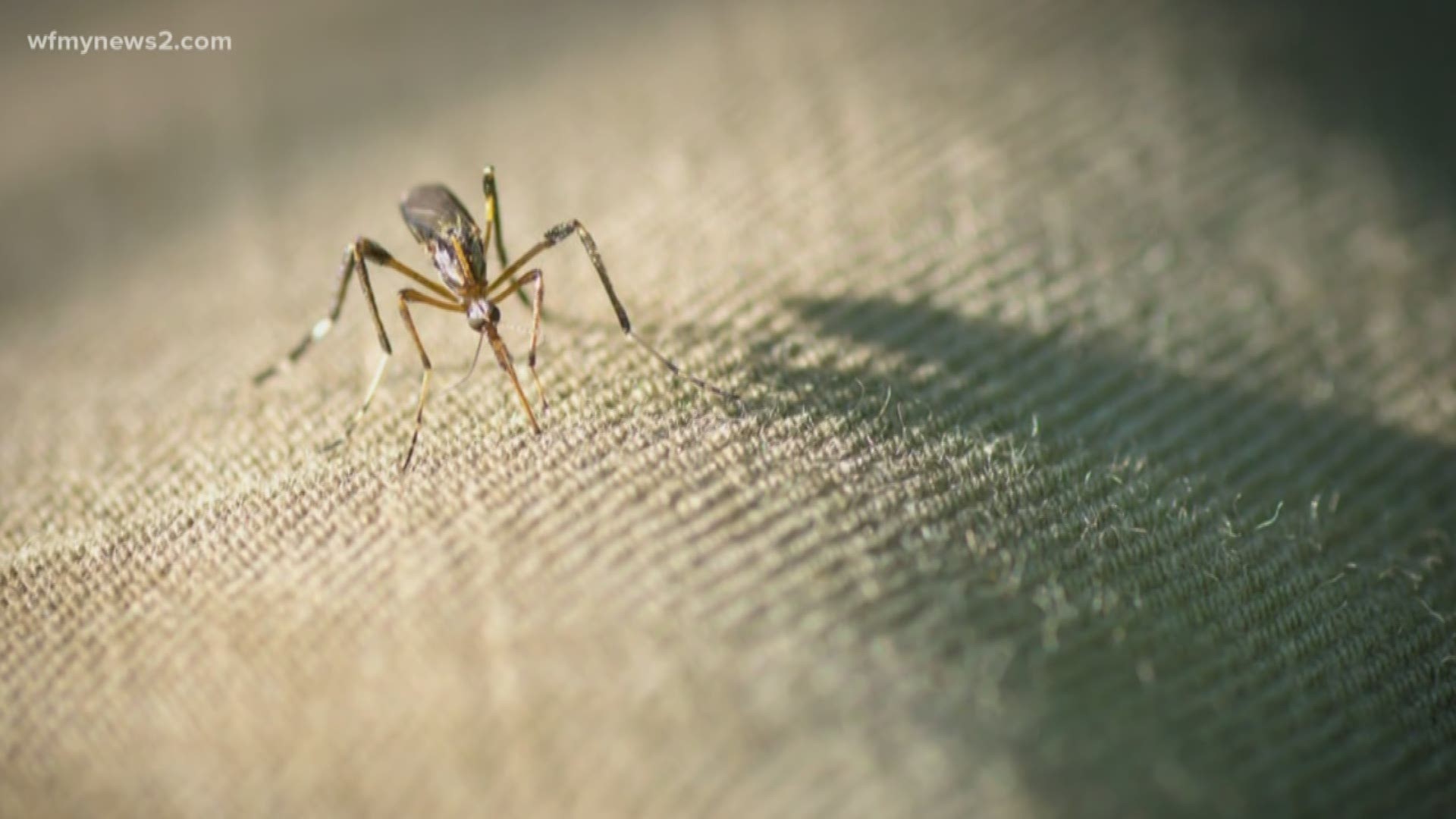Cassie Vadovsky returned home after picking up her 4-year-old daughter from school Tuesday evening and was greeted by a swarm of blood-thirsty mosquitos.
Not just any mosquitos. Aggressive, monstrous pests with stripes on their legs.
“It was like a flurry — like it was snowing mosquitos,” the stay-at-home mother of two said. “I think my car agitated them. I waited for them to calm down before I grabbed the kids and the ran into the house.”
Vadovsky is just one of the many people in North Carolina who is fighting against a monster mosquito outbreak, the result of flooding caused by Hurricane Florence.
“It didn’t hit automatically. It was more gradual. It took maybe 3 or 4 days after the storm passed before it got to this epidemic level.” Vadovsky said. “And I’m not even on the side of town that had the major flooding. Imagine how bad it could be over on that end.”
Mosquito experts say that floodwaters can cause eggs that would have otherwise laid dormant for over a year to hatch – sending billions of the vicious parasites into the air.
The ones plaguing the Carolinas are called "Gallinippers," or "Psorophora ciliata," according to entomologist Michael Waldvogel of North Carolina State University (NCSU). This species that can be three times as large as average mosquitoes and the larvae are known to prey on aquatic animals that are as large as tadpoles. The females grow up to feed on large mammals, humans included.
“There’s 61 species of mosquitoes in North Carolina and of those, probably 15 to 20 would be highly responsive to floodwaters in this way,” said Michael Reiskind, Associate Professor of the Department of Entomology and Plant Pathology at NCSU. “When you have major flooding, a lot of these eggs hatch and you can see rapid population growth.”
Just how much growth?
Reiskind surveyed an area in Raleigh, the state's capital, around the time of Hurricane Florence to monitor mosquito populations.
“Before the storm, I went out for 5-minutes and counted just three mosquitos in that time. A week after the storm, in those 5-minutes I had eight of them. Then after two weeks, (I counted) 50 in that time, and our area didn’t get hit the hardest,” Reinskind said.
Vadovsky posted a video on Facebook of the swarm around her home, generating over 76,000 views and counting. In the video, her daughter can be heard asking, “Why are you doing that – taking pictures of the wasps?” To which Vadovsky responds, “They’re not wasps. They’re mosquitoes.”
“O my word. Lord help us. Those boogers are gonna eat us alive,” comments North Carolinian Pennie Thomas. “They bit me through my shoe over here in Fayetteville. Took my son's home early from football practice cuz the field was covered in em,” comments Tristan Ortiz.
Reiskind, an entomologist, said that larger species could bite through one or two layers of cotton “pretty easily.”
Vadovsky said that the bloodsuckers rest on the windows outside her family's home in large numbers, waiting to attack. When she or a relative goes outside the mosquitoes swarm. “They’re more than just pesky,” she said.
“A female mosquito just wants to make eggs, and there’s just one way of doing that, by taking blood,” Reiskind said.
So what’s the good news?
Most mosquito species don’t do well once the weather gets cold so the experts suspect this current plague will die down in the coming weeks.
Until then, Reiskind suggests that people in areas ravaged by the storm wear long sleeves and spray insecticides.
In the wake of the mosquito outbreak, North Carolina Governor Roy Cooper ordered $4 million in control efforts to help counties hit by Hurricane Florence.
“FEMA provides reimbursement for local agencies to spray for mosquitos. So, it is possible for a county health department to do aerial spraying but not every county does it," Reiskind said.
If your area doesn’t spray, experts said Mosquito Dunks, donut-shaped products that attack mosquitoes in their developmental stages, can help stop the spread of mosquitoes. They can be found at local hardware stores.
►Download the WFMY News 2 App: Apple Users, Android Users
"These small disks of freeze-dried bacteria dissipate in water and inhibit the reproductive cycle of mosquitos. It’s not an insecticide. It’s a more natural solution that really works," said Rachel Noble, a professor at the UNC Institute of Marine Sciences.
Though mosquitoes are known to carry diseases like Zika and Malaria, Noble said that North Carolinians have the upper hand since those illnesses tend to occur in areas with denser populations. She did warn though, that the mosquito species that inhabit the Carolinas are capable of carrying West Nile and encephalitis.
“People shouldn't worry too much, a big mosquito is no more dangerous than a little one," said Reiskind. "They aren’t radioactive or genetically modified or some exotic species, this is just what happens after a hurricane hits."

